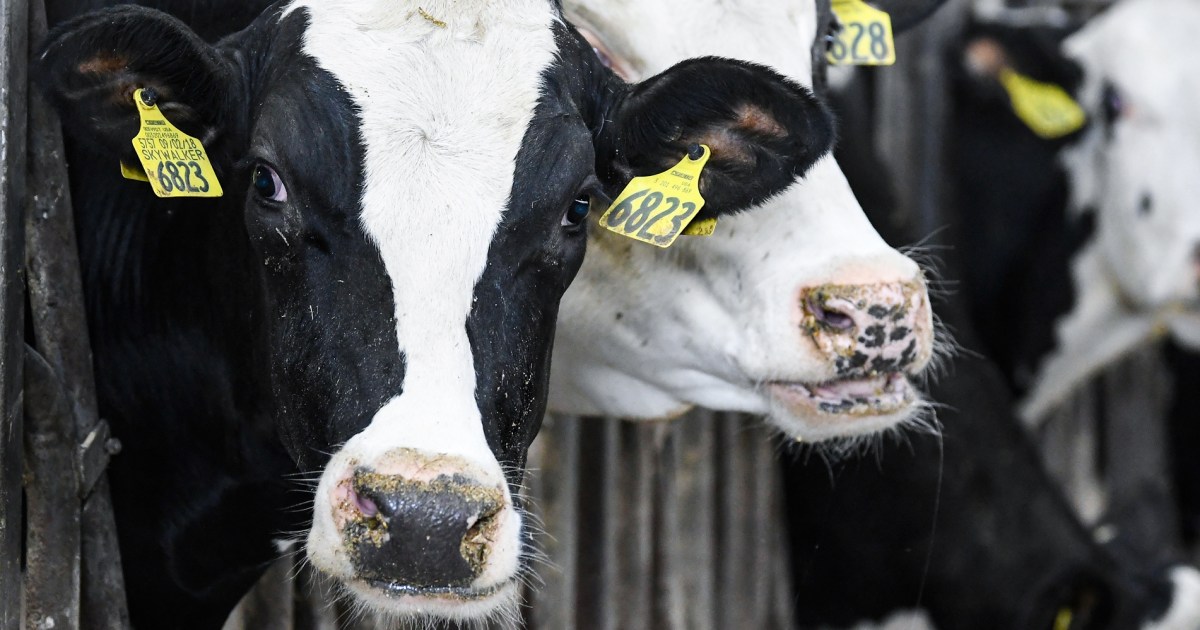At least one person in Texas was diagnosed with bird flu after coming into contact with dairy cows supposedly infected with this virus, which is recently affecting farms in this state and others in Kansas and Michigan, health authorities reported this Monday.
Texas health officials detailed that the patient is being treated with an antiviral medication and that the only symptom he presents is redness or inflammation of the eyes or conjunctivitis.
The man had apparently been in contact with possibly infected cows, although the risk of contagion to humans remains low, health officials added.
Last week, dairy cows in Texas and Kansas were reported infected with bird flu, and days later, USDA officials reported infections in a herd of Michigan dairy cows that had received recently specimens from Texas.
So far there are no signs that this virus has evolved in a way that can spread quickly between people, according to federal officials.
The announcement of the recent livestock infection in the United States adds a worrying dimension to an outbreak that has affected millions of birds and marine mammals around the world.
Preliminary tests suggest that cows in New Mexico and Idaho could also be infected, The New York Times reported.
The virus has been identified as H5N1, a subtype of bird flu very contagious among birds.
Currently, the Centers for Disease Control and Prevention (CDC) is working closely with state health departments to monitor other possible cases of people who may have come into contact with infected birds or animals.
This It is the second case of H5N1 bird flu in people in the United States. The first was registered in 2022, the Times added.
On March 25, the Food and Drug Administration (FDA), USDA and CDC confirmed the detection of highly pathogenic avian influenza (HPAI) in two dairy herds in Texas and Kansas that had cattle who had these symptoms.
Although the risk to the general public remains low, health authorities are closely monitoring developments with testing and analysis, as “this is a rapidly evolving situation,” the USDA warned last week.

